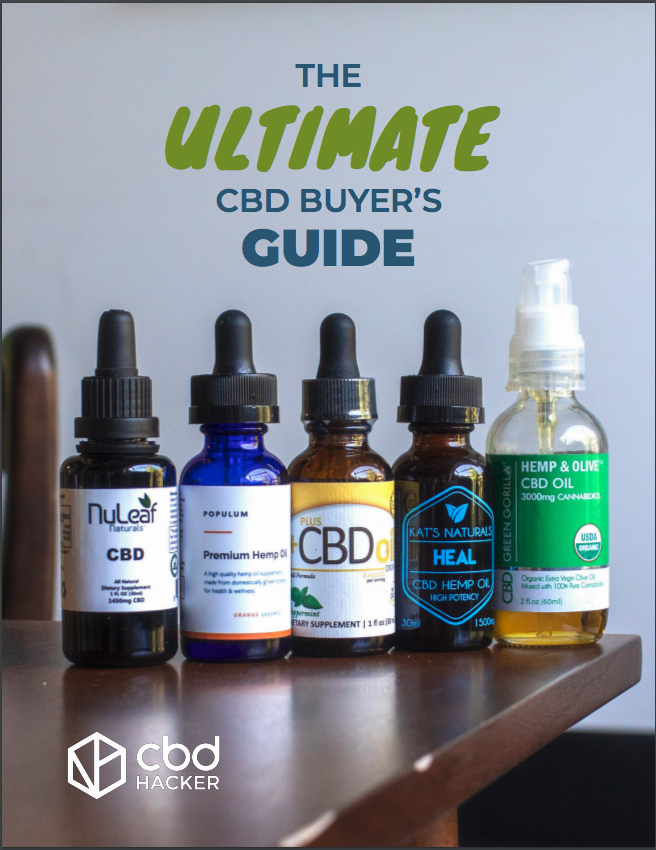CBD may be legal in the United States, but the Navy is warning sailors to stay away from it.
A Wednesday release from Navy Secretary Richard Spencer stated unequivocally that sailors and marines are prohibited from using hemp products, including CBD.
According to the statement, the prohibition stands regardless of THC content and “regardless of whether such product may lawfully be bought, sold, and used under the law applicable to civilians.”
The release goes on to warn sailors that trace amounts of THC can accumulate in the body, causing a positive result for a urinalysis screening. Sailors who test positive for THC will undergo “mandatory administrative processing and could receive a discharge characterized as other than honorable.”
This Week’s Top CBD Deals
NuLeaf Naturals
Discount: 20%
Code: cbdhacker
Pure Hemp Botanicals
Discount: 20%
Code: cbdhacker20
4 Corners Cannabis
Discount: 20%
Code: Hacker20
Populum
Discount: 15%
Code: Hacker15
Mission Farms
Discount: 20%
Code: cbdhacker
Joy Organics
Discount: 15%
Code: cbdhacker
In Columbus, Ohio, the City Attorney’s office announced this week that it will no longer prosecute misdemeanor marijuana cases and is dropping pending cases.
The statement comes in the wake of the July 30th legalization of hemp in the state, which has introduced a problem for law enforcement. As City Attorney Zach Klein explains:
“We cannot make the distinction whether it is hemp or whether it is marijuana. So, just from a practical standpoint, because we can no longer prove a case beyond a reasonable doubt, we’re no longer going to be prosecuting these cases because we do not have the resources to do so.”
In Florida, Tallahassee’s elected leaders are facing a similar problem and are considering decriminalizing marijuana to solve the problem. Says City Commissioner Jeremy Matlow:
“We have multiple law enforcement agencies, and we don’t want people thinking something is allowed when it isn’t,” he said. “The best way to clear that up is for all of our local governments to go ahead and decriminalize so there will be no question about getting arrested if you’re caught for possession.”
CBD really is everywhere. A new poll released by Gallup on Wednesday illustrates just how prevalent the cannabinoid is, with one in seven Americans reporting that they use some form of CBD.
Not surprisingly, younger Americans and those in the Western states are most likely to use CBD, though people from all demographics indicated a familiarity with the substance. Even among those 65 and older, 8% said they use it in some form.
Top reported reasons for using CBD include:
- Pain (40%)
- Anxiety (20%)
- Sleep/Insomnia (11%)
- Arthritis (8%)
The poll involved phone interviews with 2500 adults between June 19 and July 12.
In York County, South Carolina, a Tuesday press release by the York County Solicitor’s Office has CBD businesses reeling.
The press release, which announced that possession of hemp flower is illegal in the state, gave businesses until 11.59 pm Wednesday to get rid of the substance. There has been much confusion in the state as to what type of CBD is legal, resulting in major losses for some CBD businesses.
According to ABC News, the South Carolina Attorney General’s Office states that possession of raw unprocessed hemp is unlawful for anyone who does not have a state hemp license. But the Hemp Farming Act of 2019 makes no reference to hemp flower, which has led businesses to treat it as legal.
Stay in the know
[caldera_form id=”CF5b05eba6de634″]
In Massachusetts, retailers are complaining that a recent policy statement put out by the Department of Agricultural Resources is hurting businesses.
The statement, issued in late June, stated that food products containing CBD are not approved for sale in the Commonwealth. Subsequently, letters went out to business owners in some cities requesting that they voluntarily remove all CBD infused products until state and federal regulations are in place to “ensure safety to consumers.”
The fact that some cities are cracking down on CBD food sales while others are not is creating confusion, according to Julia Agron, an Amherst hemp farmer with the Northeast Sustainable Hemp Association:
“That makes for a different regulatory environment, it makes for a very difficult environment in which to grow a business.
Cornell University announced this week that Cornell AgriTech (the new name for the New York State Agricultural Experiment Station) will create an industrial hemp germplasm repository — or seed bank.
Federal money secured by Senator Chuck Schumer will fund the seed bank, which will enable researchers to identify pest-resistant and disease-resistant genes in hemp strains.
And according to Christine Smart, a professor in Cornell’s Plant Pathology and Plant-Microbe Biology department, the research will benefit the hemp industry nationally.
“The more germplasm that scientists have access to,” Smart said, “the better the chances are that we’re going to breed plants that are useful, whether it’s for managing pests or specific climates.”
On Thursday, Canadian marijuana company Tilray announced that it has received approval from the US government to ship cannabis into the U.S. to assist two research studies on CBD.
Tilray and New York University School of Medicine have partnered to plan two clinical trials. The randomized, double-blind studies will investigate CBD’s effects on alcohol use disorder as well as PTSD. And researchers are optimistic:
“I’ve looked at everything in PTSD, and this is the most interesting thing I’ve seen,” said Dr. Charles Marmar, chairman of psychiatry at NYU Langone and director of the PTSD research program.
This is Tilray’s second partnership with a U.S. research institution.





